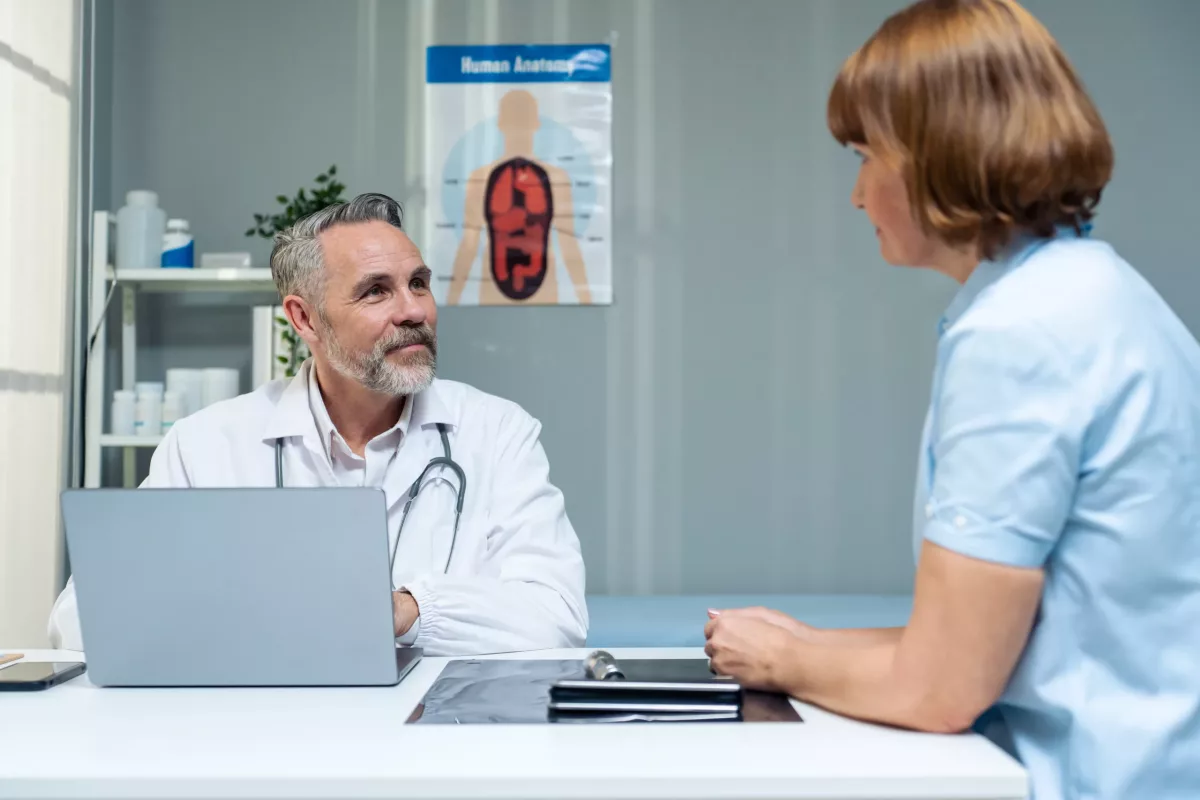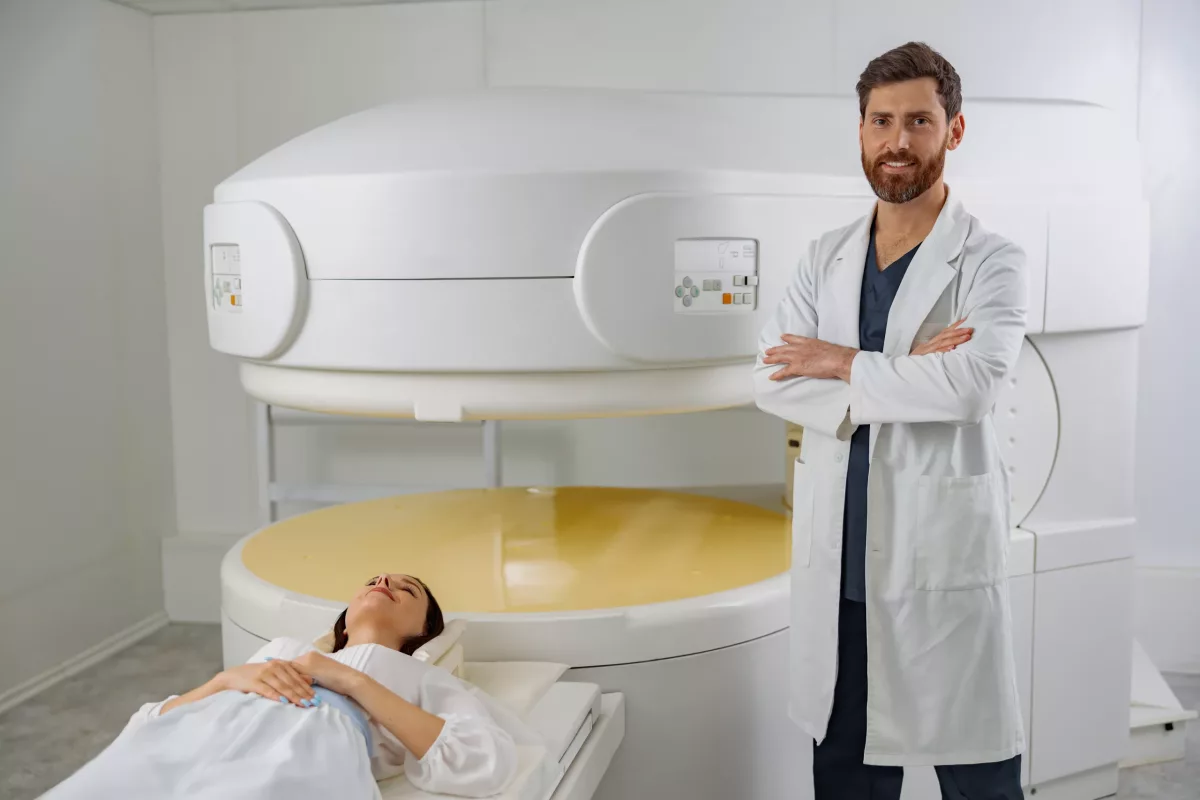This type of cancer begins to develop in the cells of the anal canal. This is a short tube at the end of the rectum through which stool passes when it leaves the body. The most common symptoms that people with anal cancer experience include rectal bleeding and pain and blood in the stool. Sometimes, hemorrhoids are mistaken for this type of cancer.
Previously, almost everyone with anal cancer had surgery to remove it. This procedure often involved a new way for waste to leave the body. Nowadays, most people with this type of cancer are treated with chemotherapy and radiation therapy.
Symptoms
Check below some symptoms that people with anal cancer often experience:
- Blood in the stool
- Bleeding from the anus or rectum
- Itching
- Frequent need to go to the bathroom
- A mass or growth in the anal canal
- Pain
If any of the previous symptoms occur, visit a doctor right away.
Causes
Like other types of cancer, anal cancer occurs when cells in the anal canal develop DNA mutations (changes). Healthcare professionals do not fully understand why these mutations happen. However, they think a combination of factors leads to this cancer type.
Normally, DNA holds instructions that tell cells when to grow, multiply, and die. A mutated DNA gives the cells different instructions that make them grow and multiply abnormally. Moreover, they live much longer than healthy cells. When abnormal cells become too many, they form a mass called a tumor that may break and spread throughout the body if it goes untreated. When any type of cancer spreads from the location where it develops, it is called metastatic cancer.
However, healthcare providers believe most anal cancers are caused by human papillomavirus (HPV). This is a virus that spreads through sexual intercourse. Usually, it does not cause problems and goes away on its own, but some people may develop some changes in the body that lead to cancer.
Risk Factors
While doctors do not know the exact cause of DNA changes that lead to this type of cancer, they have identified some factors that could increase the risk of developing it. Check below some examples:
- Exposure to human papillomavirus – While most people with HPV do not experience any problems, some people may develop certain changes that increase the risk of developing cancer, including anal cancer.
- Multiple sexual partners – This increases the risk of getting HPV.
- Anal sex – The risk of developing anal cancer significantly increases in people who have receptive anal sex.
- Smoking – Those who smoke cigarettes also have an increased risk of developing anal cancer.
- Medical history of cancer – Some people develop anal cancer after they had cervical, vulvar, or vaginal cancer.
- Weakened immune system – Sometimes, people may have a weakened immune system that makes them more likely to develop anal cancer. It often occurs due to certain medicines used to treat cancer, organ transplants, some medical conditions (such as HIV infection), and others.
What Are The Long-term Effects of Anal Cancer?
While this type of cancer rarely spreads to other parts of the body, it often spreads to the liver or lungs. If a person develops metastatic cancer, it becomes very difficult to treat. However, people with anal cancer may also experience other complications. Check below some examples:
- Adverse reactions to radiation therapy or chemotherapy drugs (such as hair loss)
- Bowel dysfunction
- Reduced sex drive
- Rectal bleeding
- Proctitis
- Surgery-associated strictures, fistulas, and wound infections
This document does not contain all possible complications of anal cancer. For more details, discuss it with your healthcare professional.
How to Prevent Anal Cancer?
Usually, there is no way to prevent this type of cancer because doctors do not fully understand why it happens. However, the following tips may help reduce the risk. For example:
- Take measures to prevent sexually transmitted infections (STIs) – It is recommended to practice safe sex by using condoms or dental dams whether you are at risk of anal cancer or not.
- HPV vaccination – To reduce the risk of getting human papillomavirus infection, you can consult with your doctor about vaccination.
- Quit smoking – Smoking cigarettes significantly elevates your risk of developing this type of cancer. If you face problems with smoking cessation, discuss it with your doctor.
If you are at increased risk of developing anal cancer, doctors may recommend regular screenings to make sure it does not develop. These include:
- Anal Pap test – This test involves swabbing cells from the anal canal and then testing them for cancerous cells in the laboratory.
- Anal HPV test – During this test doctors will check cells from the anal canal for human papillomavirus.
- Digital rectal examination – During this procedure, doctors will insert a gloves and lubricated finger into the anus to check for growths and other symptoms of cancer.
Diagnosis
Healthcare professionals usually perform the following tests and examinations to confirm the condition and rule out other diseases (such as hemorrhoids) that cause similar symptoms. For example:
- Anal canal and rectum examination – This procedure is used to check for growths and other signs of cancer.
- Anoscopy – During this test, doctors use a small and flexible tube with a lighted camera on the end to examine the anal canal and rectum.
- Imaging tests – Physicians often perform ultrasound, X-ray, MRI (magnetic resonance imaging), CT (computerized tomography), or PET (positron emission tomography) scans to get detailed images of the anal canal and rectum. Previous tests can show the exact location and size of the tumor.
- Biopsy – This test involves the removal of a small sample of the affected tissue and testing it in the laboratory to check for cancerous cells.
In addition, once you are diagnosed with anal cancer, doctors will perform additional tests to determine the stage (extent) of the cancer. It helps make the best treatment plan for you.
Treatment
The primary treatment for people with anal cancer is a combination of chemotherapy drugs and radiation therapy. Surgery is rarely used to treat this type of cancer. Doctors may prescribe additional immunotherapy when cancer spreads to other parts of the body.
Chemotherapy and Radiation
Commonly, these are the primary treatments for anal cancer.
- Chemotherapy – This treatment involves strong medicines used to destroy cancer cells throughout the body. While most people receive these medicines intravenously (IV), a pill form is also available.
- Radiation therapy – During this procedure, you will lie on a table while machinery will deliver beams of energy to the tumor to destroy it. It uses powerful energy beams that often come from protons, X-rays, or other sources.
While radiation therapy is often given daily, chemotherapy depends on the medicines your doctor chooses.
Surgery
This treatment is recommended by doctors for people with anal cancer in specific situations only. For example:
- Tumors are very small – Sometimes, the only treatment needed is surgery to remove small tumors that develop in the anal canal. Commonly, surgeons remove a small amount of healthy tissue around it to make sure all cancer cells are removed. This surgery is possible when it won’t hurt the muscles that surround the anal canal called anal sphincter muscles.
- A person does not respond to other treatments – Surgery is also prescribed if you do not respond to other treatments or if cancer remains even after radiation therapy or chemotherapy. Doctors often recommend abdominoperineal resection (also called APR). It involves the removal of the anal canal and a part of the colon.
In addition, if the cancer has spread, your healthcare provider may prescribe immunotherapy. Generally, cancerous cells produce a substance that helps them hide from the immune system. This treatment is used to boost the immunity that helps find and kill cancer cells.
Frequently Asked Questions
Can anal cancer be cured?
Yes, but only if it is found early. The primary treatment for this type of cancer is radiation therapy, along with chemotherapy. When a person does not respond to other treatments or the tumors are very small, doctors may recommend surgery.
Can HPV cause anal cancer?
Experts believe that most anal cancers are caused by this infection. It often spreads among people through direct contact of the genital area and vaginal, anal, or oral sex.
What are the main symptoms of anal cancer?
Those who suffer from anal cancer usually experience the following symptoms. For example, rectal bleeding, blood in the stool, and pain. However, in some cases, hemorrhoids are mistaken for anal cancer because it causes similar symptoms. Ask your healthcare provider if you have additional questions.




